Ideas of Place: Hawai`i’s Built Environment is the first segment of a four-part program, Modern Hawai‘i and the Liljestrand House, which coalesces the issues of immigration and design. In total, Modern Hawai‘i will pose the Liljestrand House as a cultural construct of the place, time and human aspiration which created it nearly 70 years ago in relation to its meaning and mission today.
Since 2007, the Liljestrand Foundation has preserved this highly regarded icon of Hawai`i’s mid-twentieth century architecture on a majestic site overlooking urban Honolulu. Commissioned by Dr. Howard and Betty Liljestrand in 1948, designed by noted architect Vladimir Ossipoff, FAIA (1907-1998), and built by R. Takahashi, general contractor, the Liljestrand House attained international recognition upon its publication in House Beautiful magazine as the “Pace Setter Home of 1958.”
To kick-off this program, Hawai‘i-born and raised scholar, Gary Okihiro, Ph.D., led a conversation with a panel of experts about the impact of human ideas and activities upon the island world. He posed questions regarding how such actions have and will inform how people see, understand, and thereby construct the built environment. Contrasting worldviews such as imperialism, nationalism, colonialism, capitalism, and modernity, set against the ideas of kinship with and custodianship of the land, waters, and skies, were raised to frame this session. The built environments of the former plantation system, western urbanism, militarism, and mass tourism are a few of the major forces which have shaped and continue to impact the perception and reality of this island state.
Gary was joined in conversation by Davianna McGregor and DeSoto Brown. Moderated by Dean Sakamoto, FAIA.
Gary Okihiro, Ph.D., is a Visiting Professor of American Studies and Ethnicity, Race, and Migration at Yale University. Prior to Yale, he was Professor of International and Public Affairs and the founding director of the Center for the Study of Ethnicity and Race at Columbia University. He is the author of twelve books, including American History Unbound, Asians and Pacific Islanders; Island World, A History of Hawai`i and the United States; Pineapple Culture, A History of the Tropical and Temperate Zones; and The Boundless Sea, Self and History.
Davianna Pōmaikaʻi McGregor is a professor and director of the Center for Oral History, in the Department of Ethnic Studies, College of Social Sciences, UH-Mānoa. Her ongoing research endeavors focus on the persistence of traditional Hawaiian cultural customs, beliefs, and practices in rural Hawaiian communities on the main Hawaiian islands. This work is featured in her award-winning 2007 UH Press book, Nā Kuaaina: Living Hawaiian Culture. She lives in Kaiwiula on the island of O’ahu and Hoolehua, Molokai. As a member of the Protect Kaho’olawe ‘Ohana she helps provide stewardship of the island of Kanaloa Kaho’olawe.
DeSoto Brown is the Bishop Museum Historian and Curator of the Archives. He’s been employed there for nearly 34 years and has participated in exhibits and public programs in addition to archival work. He has written a variety of books and articles on different aspects of Hawaiian history of the twentieth century. In addition, he has amassed a very large collection of Hawaiian-themed paper ephemera over the last 50 years, mostly connected to tourism and advertising promotion.
Dean Sakamoto, FAIA, is the Principal of Dean Sakamoto Architects and founder of the SHADE group (Sustainable Humanitarian Architecture Design for the Earth), based in Honolulu, Hawai`i. As a practicing architect and educator, Dean has served on the faculty of the Yale University School of Architecture and was named Transformation Fellow at UNLV School of Architecture in 2019. Dean curated the international retrospective, Hawaiian Modern: The Architecture of Vladimir Ossipoff from 2007-2009, and authored the book by the same name. Dean serves on the Board of Directors of Liljestrand Foundation.

This program series was made possible through the generous support of Vilcek Foundation.

Hawai`i Council for the Humanities provided support for the initial planning stages of this program through the National Endowment for the Humanities (NEH) as part of the CARES Act of 2020.









